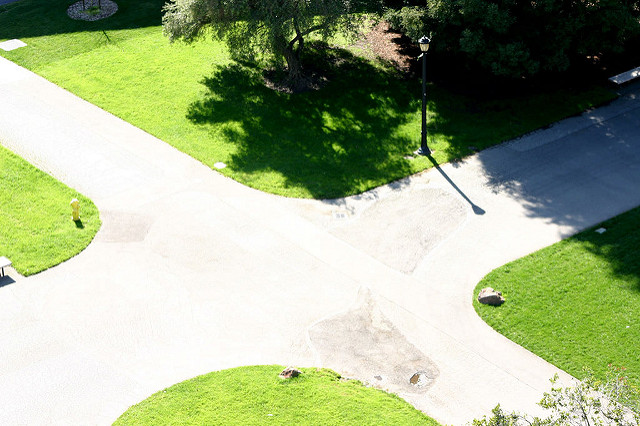Writing this month’s magazine article is a little strange as I am effectively arguing against my own profession.
For nearly thirty years I’ve been researching consumer behaviour then feeding the results to government departments and other organisations to help them make their decisions. More often than not part of the process has involved some manner of opinion collection, be it a survey, focus group, indepth interview or social observation. Clearly I am not averse to a survey, indeed they’ve been the saviour of every mortgage I’ve had. What’s got me utterly flabbergasted though is the some of the surveys currently taking place.

thanks to dotpolka
Obviously there’s the mother of all surveys, the Census, which is fair enough. Governments have to be able to track changes in the Australian demographic profile to ensure infrastructure matches demand. Balancing the new school to nursing home ratio is like watching an arthritic elephant and hyperactive meerkat playing on a seesaw, a never-ending struggle.
However, the other day I read an article about a survey undertaken with kindergarten, sorry Childcare Centre, inhabitants. The national study explored their attitudes towards childcare. Seriously? There have been countless studies about childhood developmental needs, attitudes and preferences, the organisation could’ve simply undertaken a literature review or consulted an academic or two. Failing that they could have spoken to the Child Centre staff or simply sat in on a few weeks sessions to watch what the children were doing. But no. Instead they decided to survey Kindy kids. Kindy kids. I’m no rocket scientist but I’m fairly sure that when you ask a four year old what they prefer doing, the likelihood of them giving an answer that’ll hold true for the 12 months it’ll take to develop the new curriculum, is as likely as a meerkat being flung skyward, should his playmate elephant remember he’s left the iron on and step off the seesaw.
Turns out children prefer to play outdoors or do art and crafts rather than use technology or learn something new. Yes, I know what you’re thinking playing outdoors or making art is in fact an opportunity to learn something new, but I digress. The article didn’t say who commissioned the survey but I’m guessing it wasn’t one of the technology giants. The article concluded that most kids just want to play. Who knew? Did we really need a survey for this? Surely in the interests of protecting childrens’ innocence this could have been averted. Did their tender eyes really need to be ravaged by the sight of a woman with a clipboard at such an impressionable age? There’ll be ample opportunities for that later in life.
And then there’s the matter of the million-dollar mail survey currently taking place. Regardless of the topic, or your political persuasion, I still can’t grasp the need to garner opinion on such a grand scale. Decades ago statistical geniuses with long wiry beards and not a latte in sight, worked out that a representative random sample of say 10,000 people was more than enough to confidently predict consumer behaviour. This approach has been good enough for countless years investigating everything from toothpaste, to new cars, household water supply, traffic movement, political polling, even medical advances. Even more disconcerting is that the result, whatever it is, will not signal the end of the debate. It will only signal the need for those requesting the survey to ponder the issue. What further pondering is required? Living in a democratic country I’m fascinated to see what will happen if the final result is anything other than what the people said they wanted. The consumer psychologist in me will be securing a front row seat for that.
After thirty decades of working in corporate land it’s clear that there are three reasons why clients undertake surveys. The first is to confirm a decision that’s already been made. The second to decide between two or three strong alternatives, in which case it’s usually best to go with the one the CEO’s wife prefers. Then there’s the third option. When the management team has either no idea what to do, or know what to do but are afraid to make the decision. Either way once the results come in they’ll be heralded as obvious.
For the sake of future generations can decision making please be elevated to a cornerstone of primary school curriculum, so our Kindy folk can get back to playing. For the sake of humanity can Humankind.2 please arrive with a larger set of … coconuts.
[footnote: if anyone is offended please note the ‘Giggles’ label on this post.]




